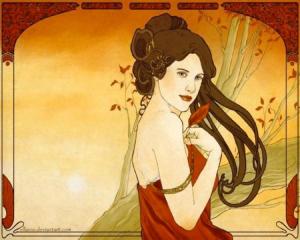| Author: | Stanley John Weyman | ISBN: | 9781465523020 |
| Publisher: | Library of Alexandria | Publication: | March 8, 2015 |
| Imprint: | Language: | English |
| Author: | Stanley John Weyman |
| ISBN: | 9781465523020 |
| Publisher: | Library of Alexandria |
| Publication: | March 8, 2015 |
| Imprint: | |
| Language: | English |
The slight indisposition from which the Queen suffered in the spring of 1602, and which was occasioned by a cold caught during her lying-in, by diverting the King's attention from matters of State, had the effect of doubling the burden cast on my shoulders. Though the main threads of M. de Biron's conspiracy were in our hands as early as the month of November of the preceding year, and steps had been immediately taken to sound the chief associates by summoning them to court, an interval necessarily followed during which we had everything to fear; and this not only from the despair of the guilty, but from the timidity of the innocent who, in a court filled with cabals and rumors of intrigues, might see no way to clear themselves. Even the shows and interludes which followed the Dauphin's birth, and made that Christmas remarkable, served only to amuse the idle; they could not disperse the cloud which hung over the Louvre, nor divert those who, on the one side or the other, had aught to fear. In connection with this period of suspense I recall an episode, both characteristic in itself, and worthy, I think, by reason of its oddity, to be set down here; where it may serve for a preface to those more serious events, attending the trial and execution of M. de Biron, which I shall have presently to relate. I had occasion, about the end of the month of January, to see M. du Hallot. The weather was cold, and partly for that reason, partly from a desire to keep my visit, which had to do with La Fin's disclosures, from the general eye, I chose to go on foot. For the same reason I took with me only two armed servants, and a confidential page, the son of my friend Arnaud. M. du Hallot, who lived at this time in a house in the Faubourg St. Germain, not far from the College of France, detained me long, and when I rose to leave insisted that I should take his coach, as snow had begun to fall and already lay an inch deep in the streets. At first I was unwilling to do this, but reflecting that such small services are highly appreciated by those who render them, and attach men more surely and subtly than the greatest bribes, I finally consented, and, taking my place with some becoming expressions, bade young Arnaud find his way home on foot. The coach had nearly reached the south end of the Pont au Change, when a number of youths ran by me, pelting one another with snowballs, and shouting so lustily that I was at a loss which to admire more--the silence of their feet or the loudness of their voices. Aware that lads of that age are small respecters of persons, I was not surprised to see two or three of them rush on to the bridge before us, and even continue their Parthian warfare under the very feet of the horses. The result was, however, that the latter presently took fright at that part of the bridge where the houses encroach most boldly on the roadway; and, but for the care of the running footman, who hastened to their heads, might have done some harm either to the coach or the passersby
The slight indisposition from which the Queen suffered in the spring of 1602, and which was occasioned by a cold caught during her lying-in, by diverting the King's attention from matters of State, had the effect of doubling the burden cast on my shoulders. Though the main threads of M. de Biron's conspiracy were in our hands as early as the month of November of the preceding year, and steps had been immediately taken to sound the chief associates by summoning them to court, an interval necessarily followed during which we had everything to fear; and this not only from the despair of the guilty, but from the timidity of the innocent who, in a court filled with cabals and rumors of intrigues, might see no way to clear themselves. Even the shows and interludes which followed the Dauphin's birth, and made that Christmas remarkable, served only to amuse the idle; they could not disperse the cloud which hung over the Louvre, nor divert those who, on the one side or the other, had aught to fear. In connection with this period of suspense I recall an episode, both characteristic in itself, and worthy, I think, by reason of its oddity, to be set down here; where it may serve for a preface to those more serious events, attending the trial and execution of M. de Biron, which I shall have presently to relate. I had occasion, about the end of the month of January, to see M. du Hallot. The weather was cold, and partly for that reason, partly from a desire to keep my visit, which had to do with La Fin's disclosures, from the general eye, I chose to go on foot. For the same reason I took with me only two armed servants, and a confidential page, the son of my friend Arnaud. M. du Hallot, who lived at this time in a house in the Faubourg St. Germain, not far from the College of France, detained me long, and when I rose to leave insisted that I should take his coach, as snow had begun to fall and already lay an inch deep in the streets. At first I was unwilling to do this, but reflecting that such small services are highly appreciated by those who render them, and attach men more surely and subtly than the greatest bribes, I finally consented, and, taking my place with some becoming expressions, bade young Arnaud find his way home on foot. The coach had nearly reached the south end of the Pont au Change, when a number of youths ran by me, pelting one another with snowballs, and shouting so lustily that I was at a loss which to admire more--the silence of their feet or the loudness of their voices. Aware that lads of that age are small respecters of persons, I was not surprised to see two or three of them rush on to the bridge before us, and even continue their Parthian warfare under the very feet of the horses. The result was, however, that the latter presently took fright at that part of the bridge where the houses encroach most boldly on the roadway; and, but for the care of the running footman, who hastened to their heads, might have done some harm either to the coach or the passersby















